We all have ambitious career goals we aim to achieve, but as product managers, we’re often pulled in so many directions it can be hard to be laser-focused in achieving them.
In this article, I want to share a very powerful framework called Career Fuel, made up of three fuel types; transportable fuel, enduring relationships, and meaningful experiences. Career fuel helped me become more intentional and strategic in my own career, and I’ll share actionable insights so you can do the same and achieve your goals.
Career fuel
As the title says, this article is all about you and your career. I want to share a very powerful framework with you, which is called career fuel, that's going to help you grow your career.
There are three types of fuel:
- Transportable skills,
- Enduring relationships, and
- Meaningful experiences.
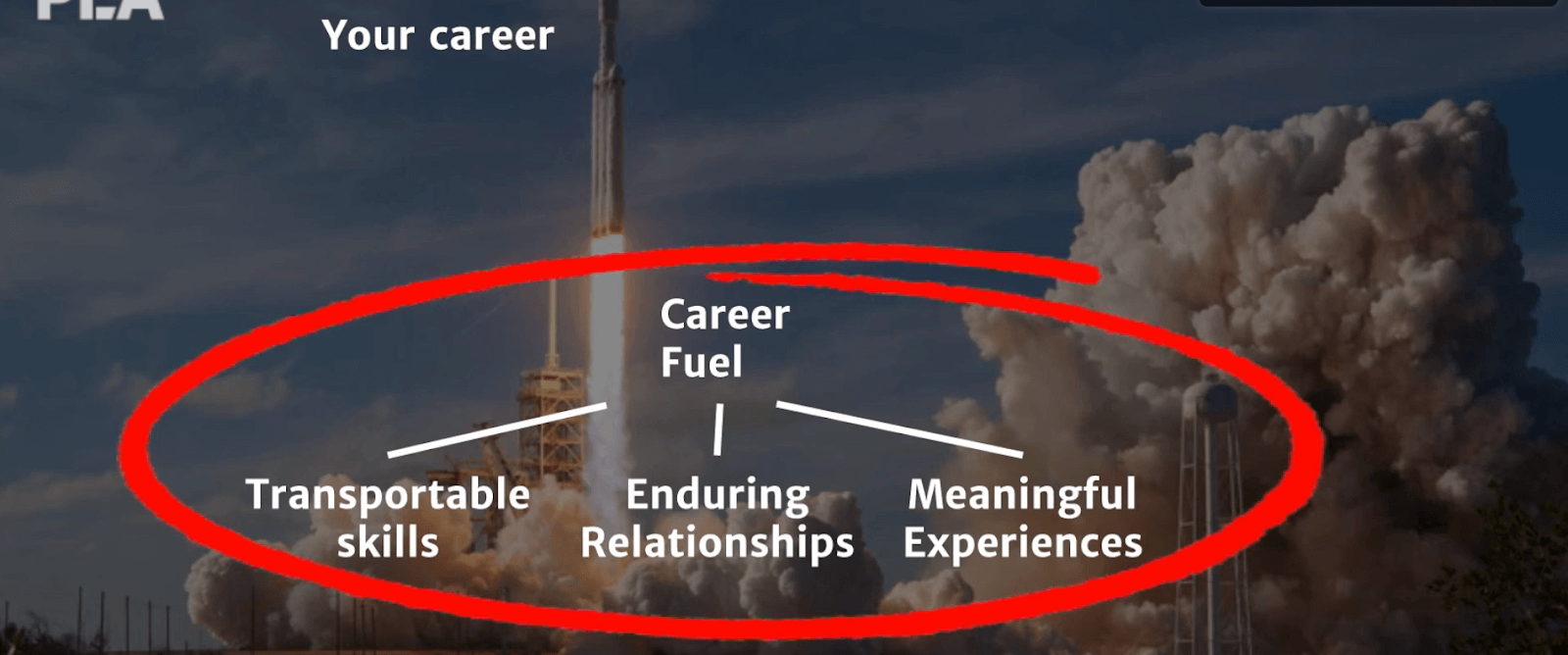
If you accumulate these three types of fuel, that's what's going to power your career and take it to the next level.
It doesn't matter if you're an associate PM just starting out or an experienced Chief Product officer. What we all have in common is many years of our career in front of you and so accumulating this fuel is going to help us make the most of it.
That's what this article is all about.
The framework
Before I explain each type of fuel and how you can accumulate it effectively, I want to start with where this framework came from.
Originally, it came from advertising from someone named Brian Fetherstonhaugh, who was the CEO of one of the divisions at Ogilvy, one of the most prestigious advertising firms in the world. He shared his framework called career fuel in a book called The Long View.
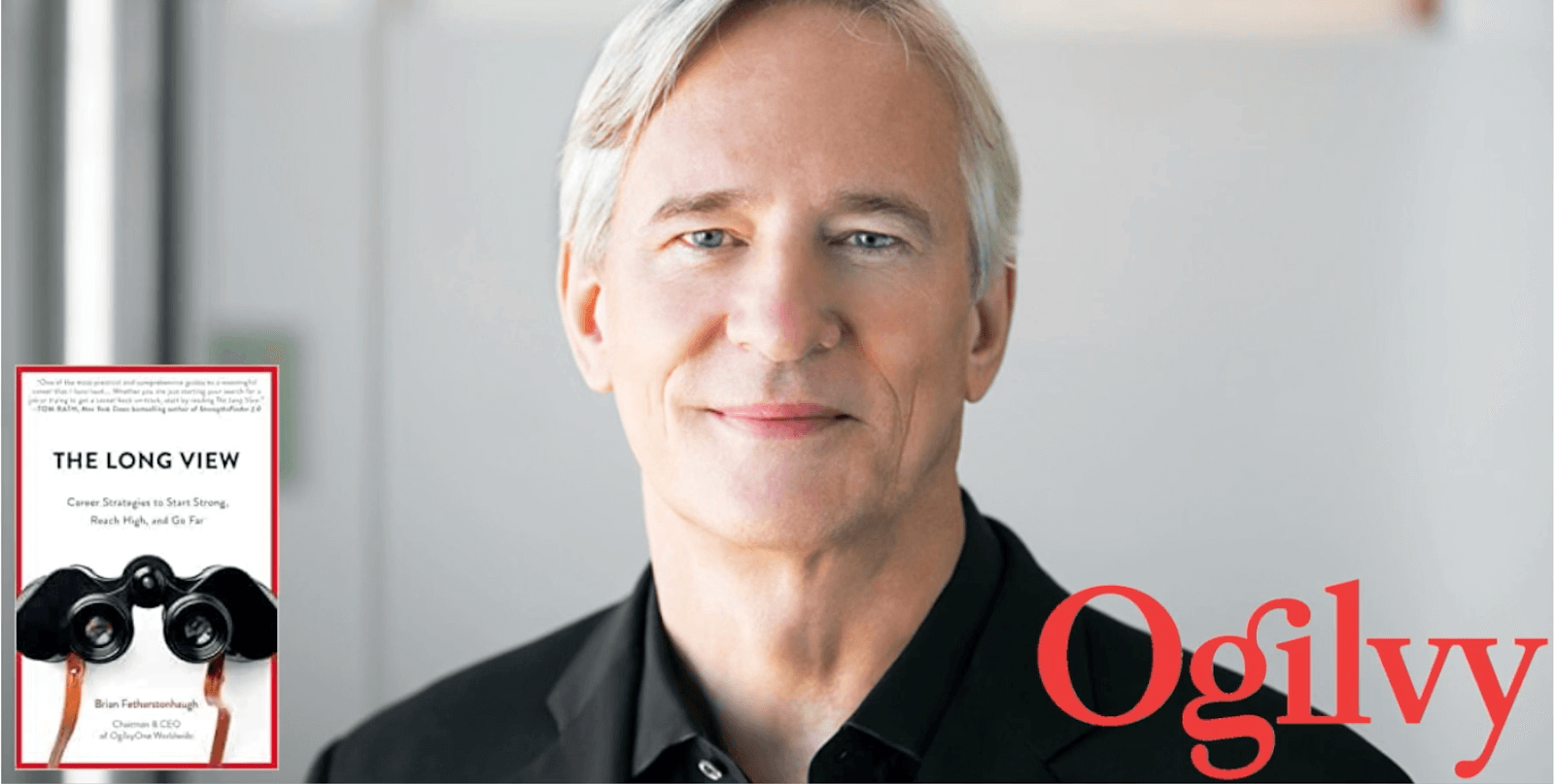
You might be thinking, "Okay, advertising, what does that have to do with anything? I'm in product management, why is this relevant?"
Things I wish I knew sooner
It's relevant because while the framework itself is very broad we can make it actionable for product management. It's one of those things I wish I knew sooner and that's why I want to share it with you in this article.
I also want to make the framework 100% actionable for product management. That's why all the examples I'm going to share from my own life and from others are going to be 100% geared towards product management so you can take them away and get started the following day if you want to.
Theory
We all know the theory, we have our ambitious career goals, you're reading this today, and now we're super strategic on a straight line to achieve our goals.
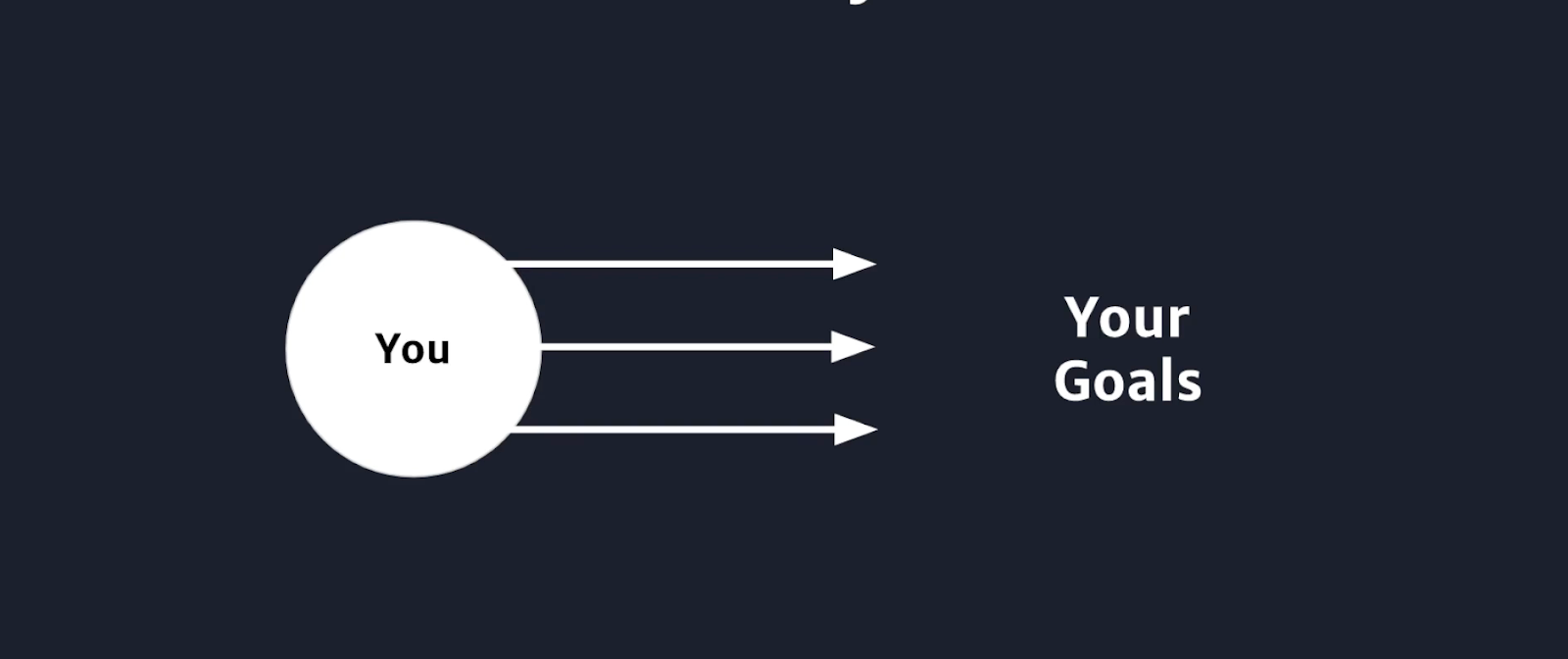
Practice
Unfortunately, what I've found is for myself and many other PMs I know and talk to, it's not been like this, because the practice is wild.
Product management is a rollercoaster, we're very busy people and we get dragged into many different things because expectations are so high.
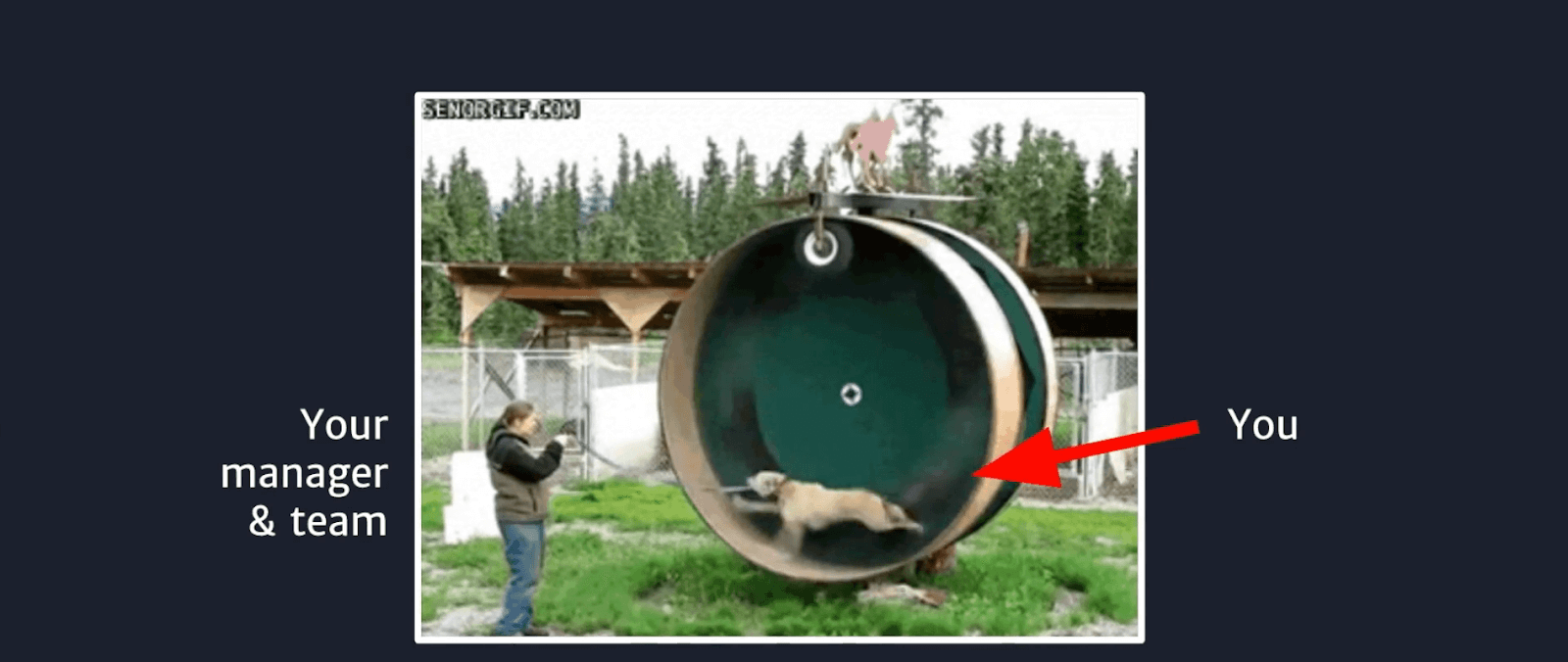
Reactive
People ask you, "Can you help with this? Can you help with that?"
Suddenly, oh my God, we only have one month left in Q2. With all of these demands, how the hell are you supposed to stay strategic and take a step back and only do stuff that advances you and helps you reach your goals?
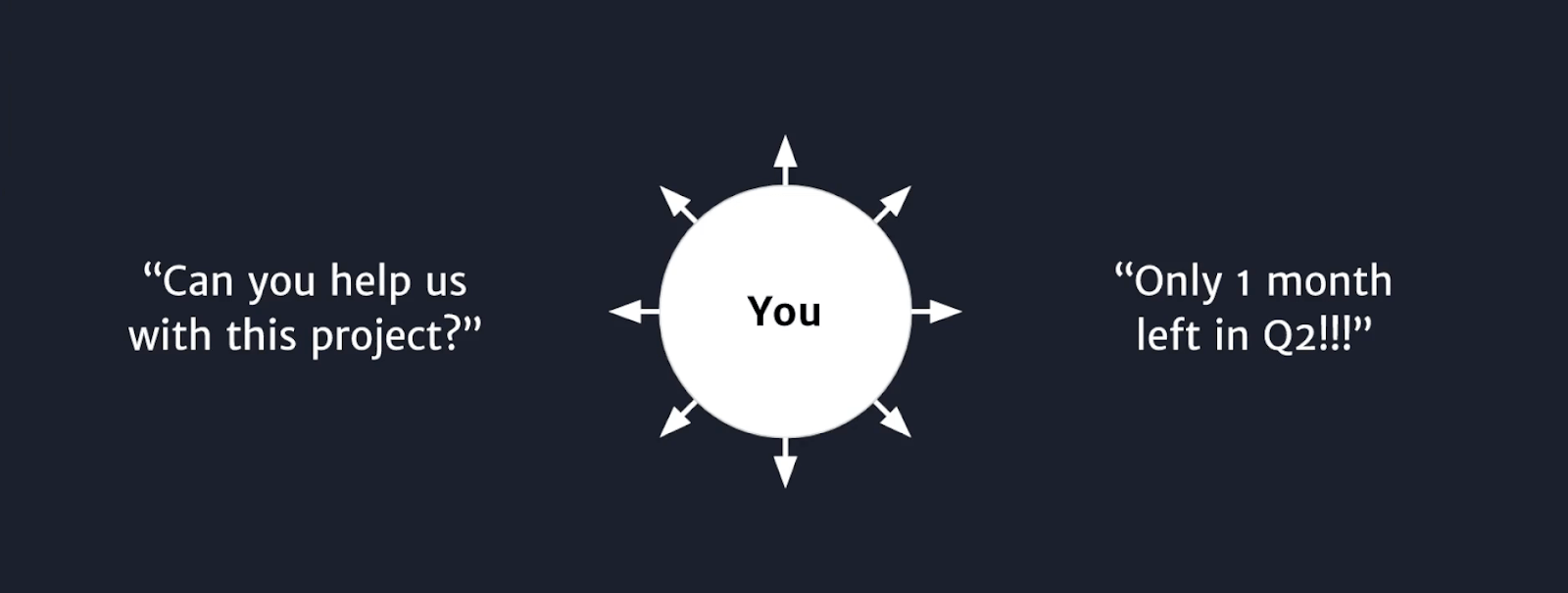
Proactive: Strategic
That's something I've always been struggling with and I always ask myself the question, how can I be strategic? How can I do that?
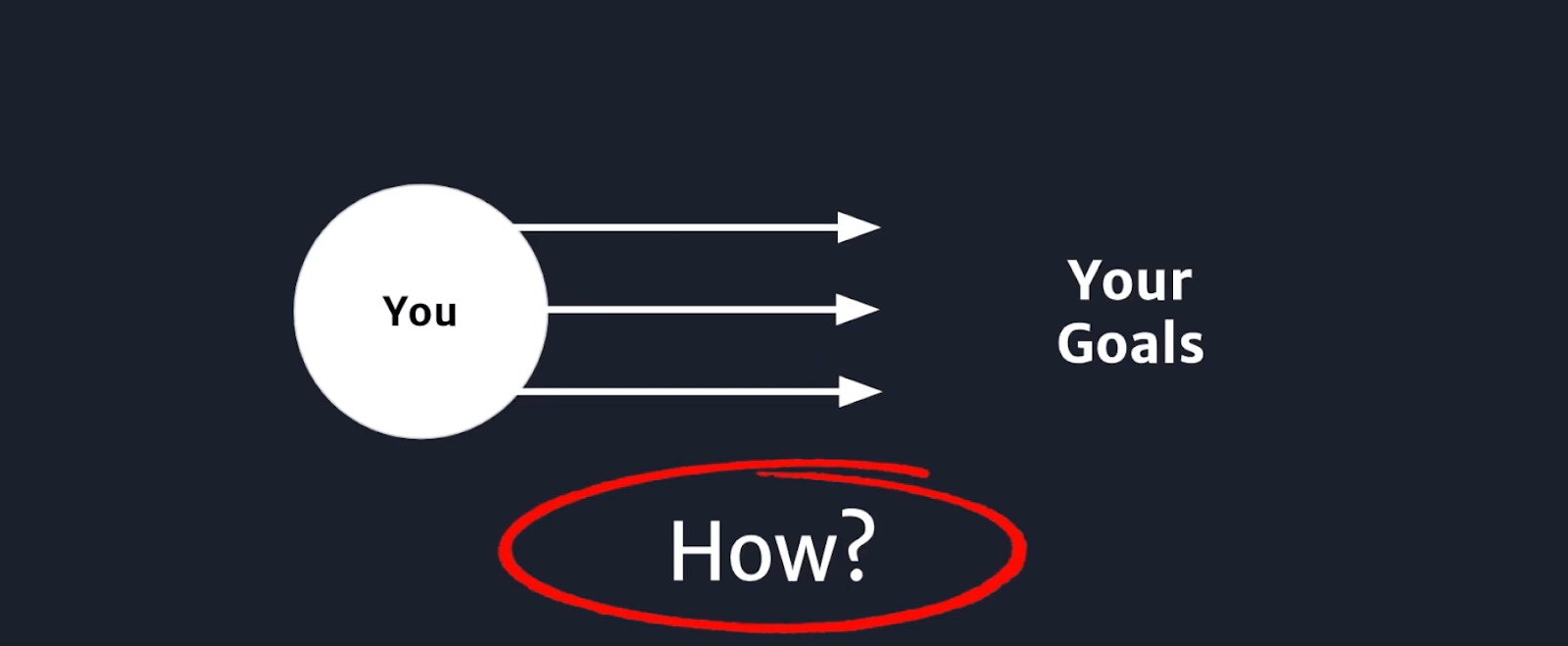
Career fuel
Career fuel is the framework that really changed my outlook on these things, and helped me become intentional and strategic. Let me explain the three types of fuel in more detail so you can also make it your own.
Fuel #1: Transportable skills
The first type of fuel is transportable skills. What are transportable skills? They are the opposite of domain skills.

Domain skills
I guess most of us know what domain skills are, things like specific industry knowledge. In my personal situation, I work in a FinTech company, a bank, and there's a lot to know about; payment schemes and regulation, but also about the market, competition, customer expectations, all that stuff.
Then, another type of domain skill is, for example, your company's data warehouse, do you have the skills it takes to navigate it? Do you know which table sits where and how to get those insights?
The same applies to other internal processes there might be. Another typical thing is tools. The AB testing tool your company uses, how to do advanced things with JIRA, or whatever. These are all domain skills.
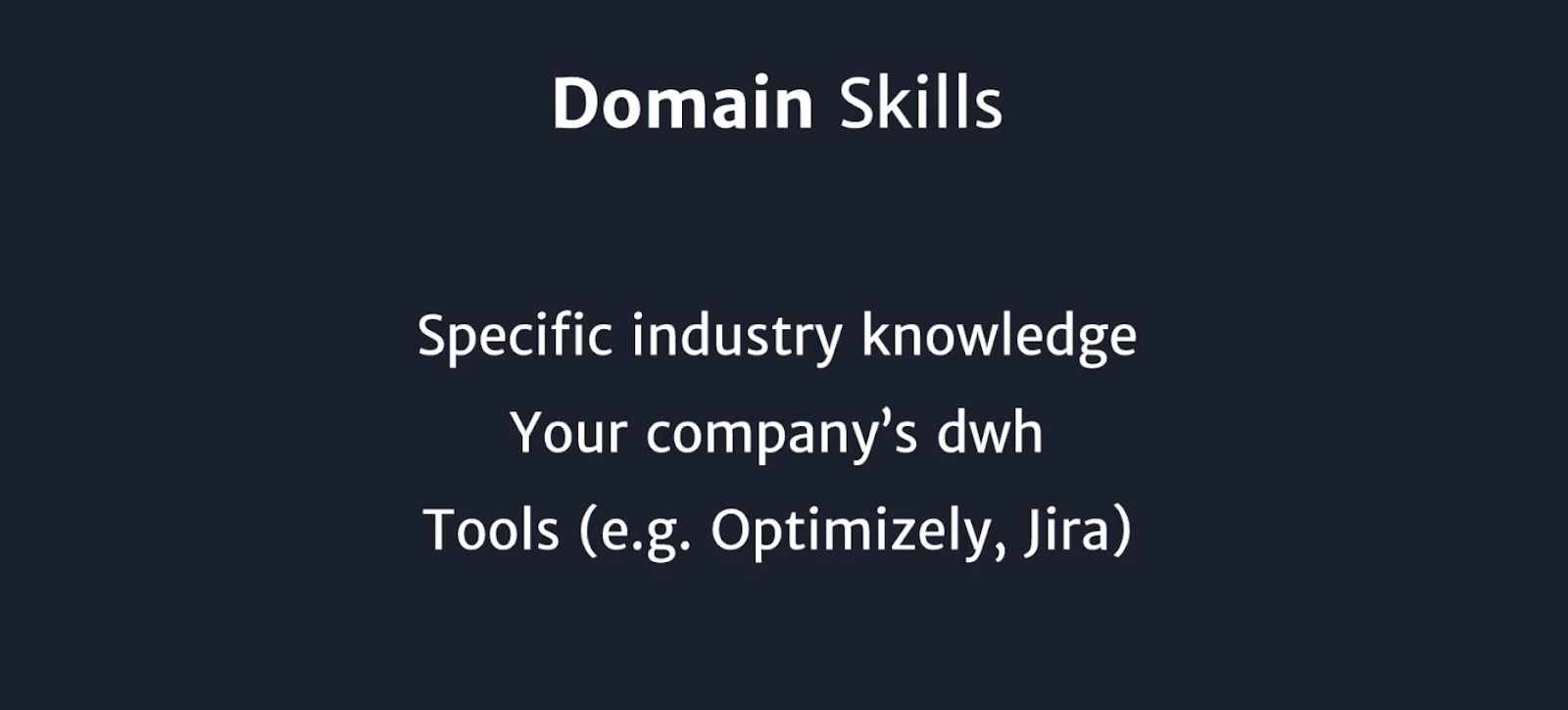
Transportable skills are the opposite
Transportable skills are really the opposite of that in the sense that they're universal, no matter your position, your company, your industry, they will always matter.
Communication
These are things like communication, speaking, writing, listening, giving feedback, all these communication skills.
Leadership & collaboration
Leadership collaboration, do you have the skills it takes to be an effective leader, and do you have enough leadership styles so you can adapt to the situation at hand?
Emotional intelligence
Then, of course, emotional intelligence, which is hugely important. Self-awareness and self-management, but also the ability to empathize with others, and also influence others and be persuasive.
Productivity
Of course, productivity on the efficiency side, like time management, all that stuff. On the effectiveness side, strategic thinking, decision making, cognitive biases, all of that kind of stuff. These are transportable skills.
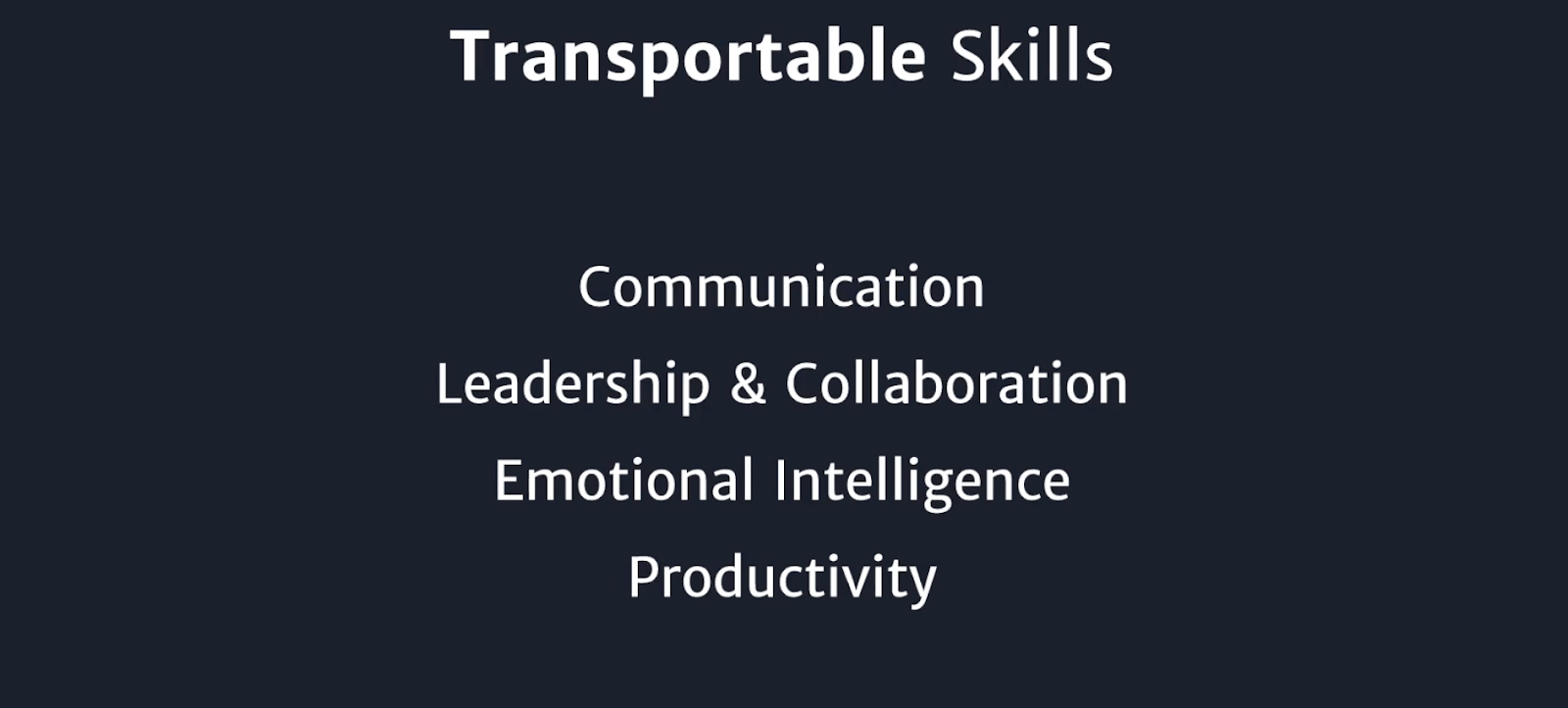
Why are transportable skills important?
Because it doesn't matter what your current job title is, or the industry, or the company. If you change companies or industries, these skills will go with you. What's even more important is as you move up and become more senior, these transportable skills matter more and more, and the domain skills start mattering less and less.
Domain skills decrease in value
Basically, what you will start to realize is that domain skills, while this is where most people will push you towards, and these are the most immediate ones and tangible ones, they're actually decreasing their value over time because tools change so you have to constantly relearn stuff.
Transportable skills increase in value
The moment you change company, you will lose all the company-specific domain skills. Whereas your transportable skills stay with you over time, it actually compounds, and over time, as they become more relevant, they become more and more valuable to you.
Lesson #1: Delegate domain skills, invest in transportable skills
That's why the first lesson I want you to take away from this article is you should delegate domain skills as much as possible.
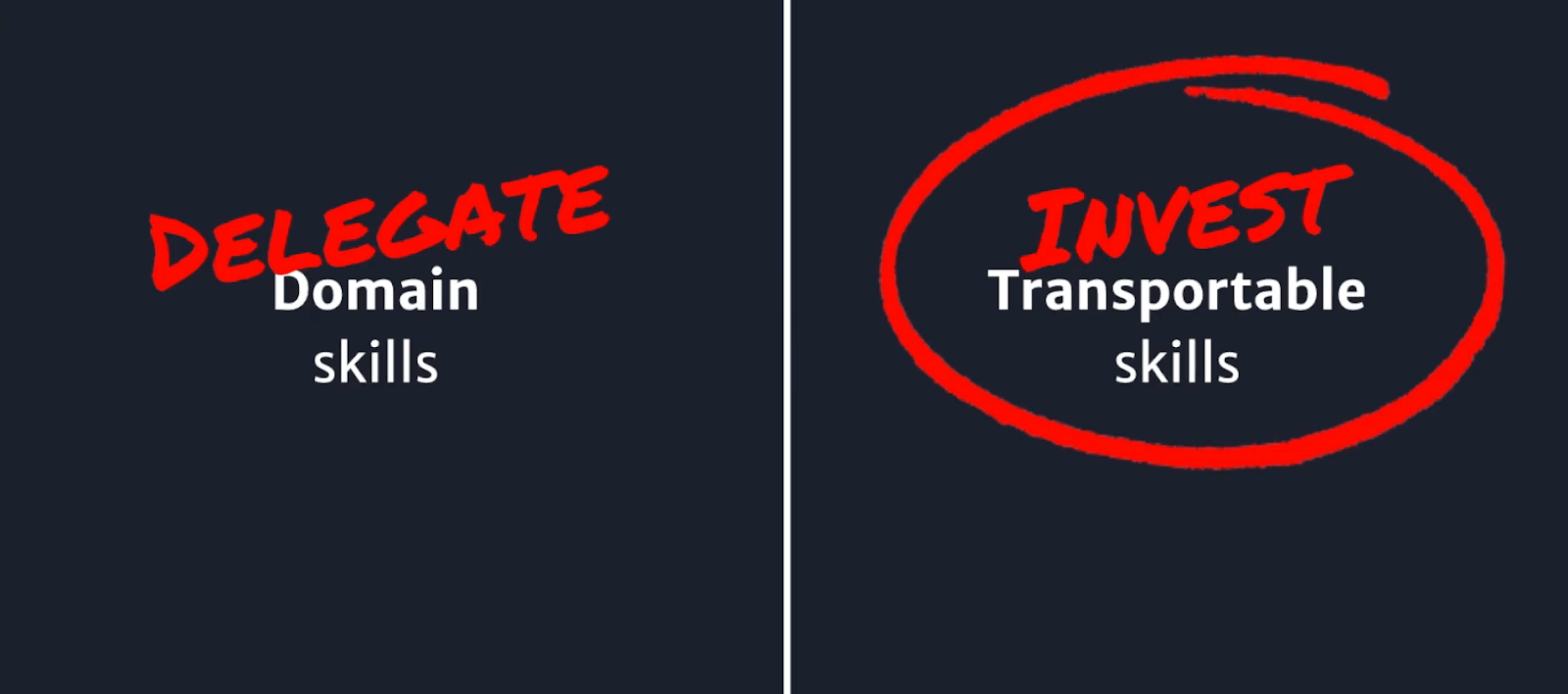
Of course, you don't want to forget about them, because they're important and you need to learn as much as you can to get the job done. But anything beyond that you should delegate, don't get dragged into learning those because they're right there and tangible.
Instead, invest as much of your time and effort as possible into building your transportable skills because this compounds over time. Really build your communication skills, leadership skills, emotional intelligence, and become a productive person. That's the first lesson.
Where to start?
The question of course is, how are you going to do that? You start with 360 feedback. Ask people you work with, what's their perception of you, this is going to give you your strengths and your weaknesses so you'll know yourself. You can then align that with your long-term goals and that's what's going to give you focus areas.
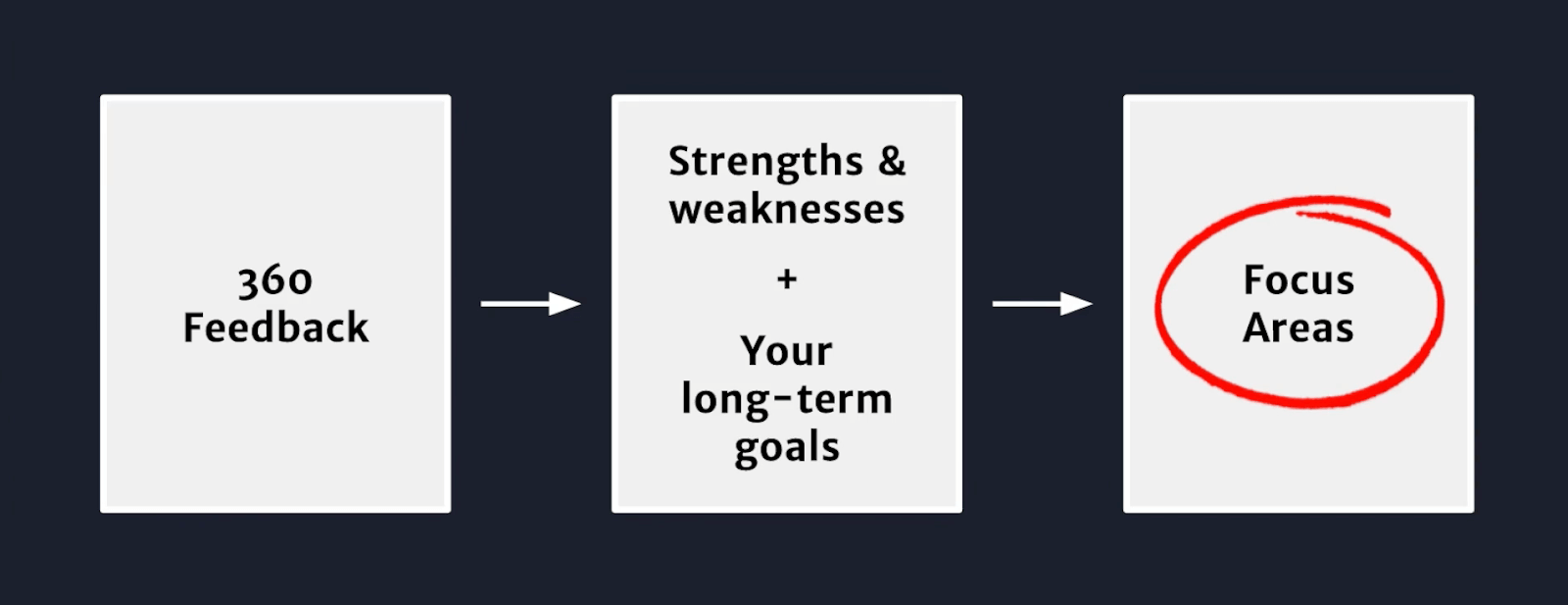
These are the transportable skills you want to focus on. The main point here is to think about skills and try to make it in a way that no matter if you were to change industries, these would still be relevant. Try to make it as transportable as possible.
That really is the first type of fuel - transport skills. Let's go to the second type of fuel.
Fuel #2: Enduring relationships
No surprise you see relationships here, business and especially product management is all about people. If you put yourself in the center, you're going to have many different relationships.
Your boss
One of the most important ones is the relationship with your boss.

Many people invest a lot in this relationship, because your boss is the one who promotes you, and you have one on ones with them. That's great. But I still think many people have a good opportunity to make it deeper than that.
See your boss, not just as your boss, but as a human being. Empathize with them, just as you would empathize with the customer, put yourself in their shoes, and help them be more successful.
Also just treat them as a friend and get to get to know them on a human level, as a human being because they are someone who knows you very well, and they're also someone who's ahead of you and can open doors for you in the future.
That's a relationship you should cultivate - the one with your boss.
Your development team
Another one is, of course, the one with your development team.

These are the people, developers, designers, you spend your day to day with usually, and these are the people you're in the trenches with.
You have team outings with them and all that stuff but beyond that, you can cultivate deeper relationships by being curious, ask them questions, learn from them, and stay close to them, even after they leave your team or your company, check up on them.
Because again, even beyond your current status quo, they will go on to do amazing things, even start their own companies. Who knows, maybe you'll meet each other in the future.
The PM team at your company
Then the PM team at your company, other fellow product managers.

Funnily enough, I've seen it at many high-growth companies, because there are no processes in place, people get dragged into the work with the development team, they see their boss from time to time, but they actually don't interact with other product managers.
If you're in this kind of situation create a space for you to talk, a weekly meeting where all of the PMs can exchange. If you already have that format, benefit from it, suggest stuff, share tools, frameworks, knowledge, feedback, whatever it might be.
Be intentional and cultivate those relationships.
Stakeholders
The same applies to your stakeholders.
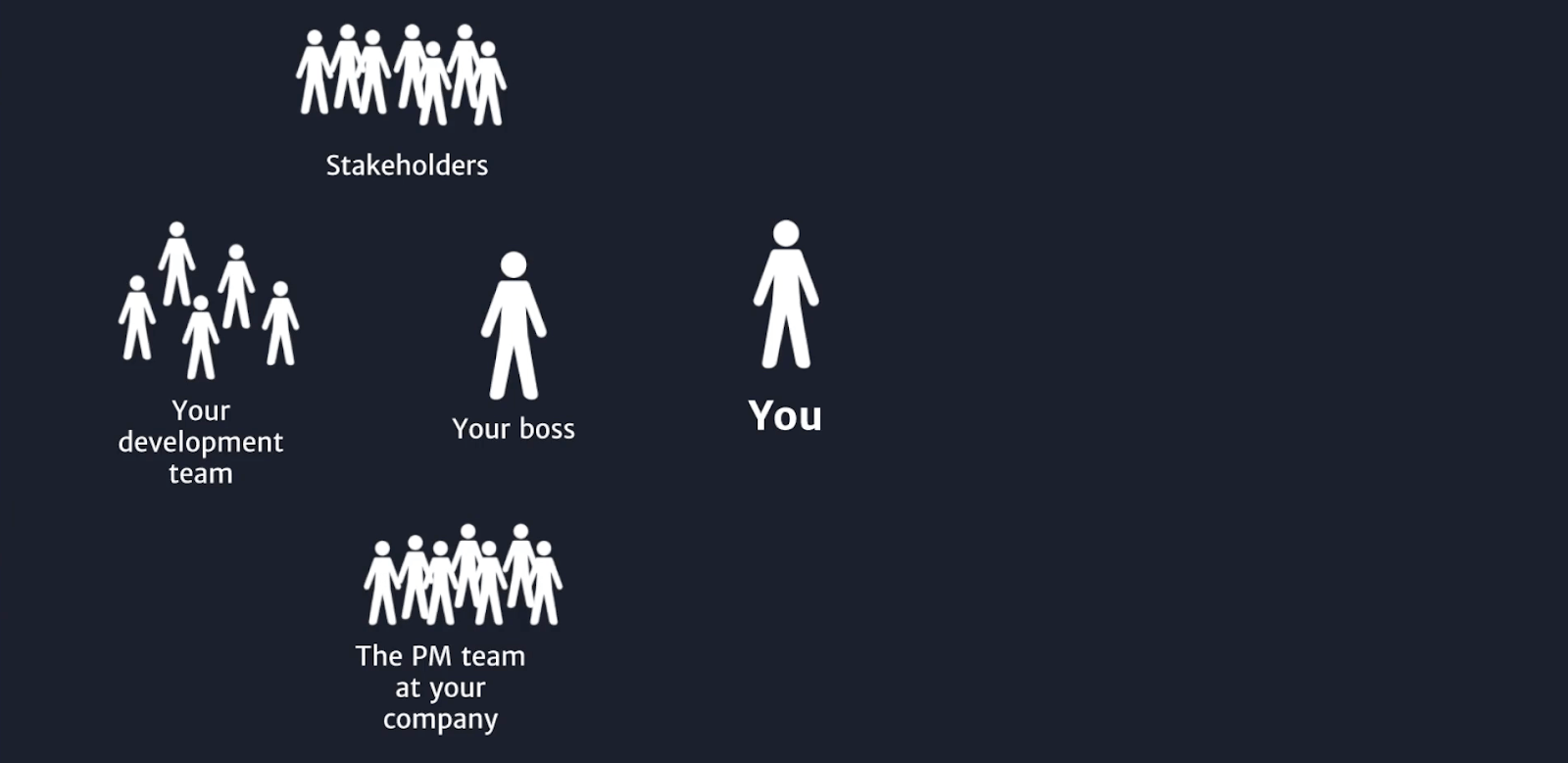
Unfortunately, many PMs suggest stakeholders are almost like a necessary evil, you have to talk to them once a quarter or when a project starts and that's it. Otherwise, you avoid them because they will ask for new features.
I think that's the wrong mindset. I think that many of us have an opportunity to improve here, in the sense of, again, treating them like human beings. These are people we can learn from, people who have needs and desires, maybe we can help them, maybe they can help us and that's a really important type of relationship you can cultivate.
Clients, partners, investors
And that was just looking inside of your company. If you look outside of your company, you have clients, partners, and investors.
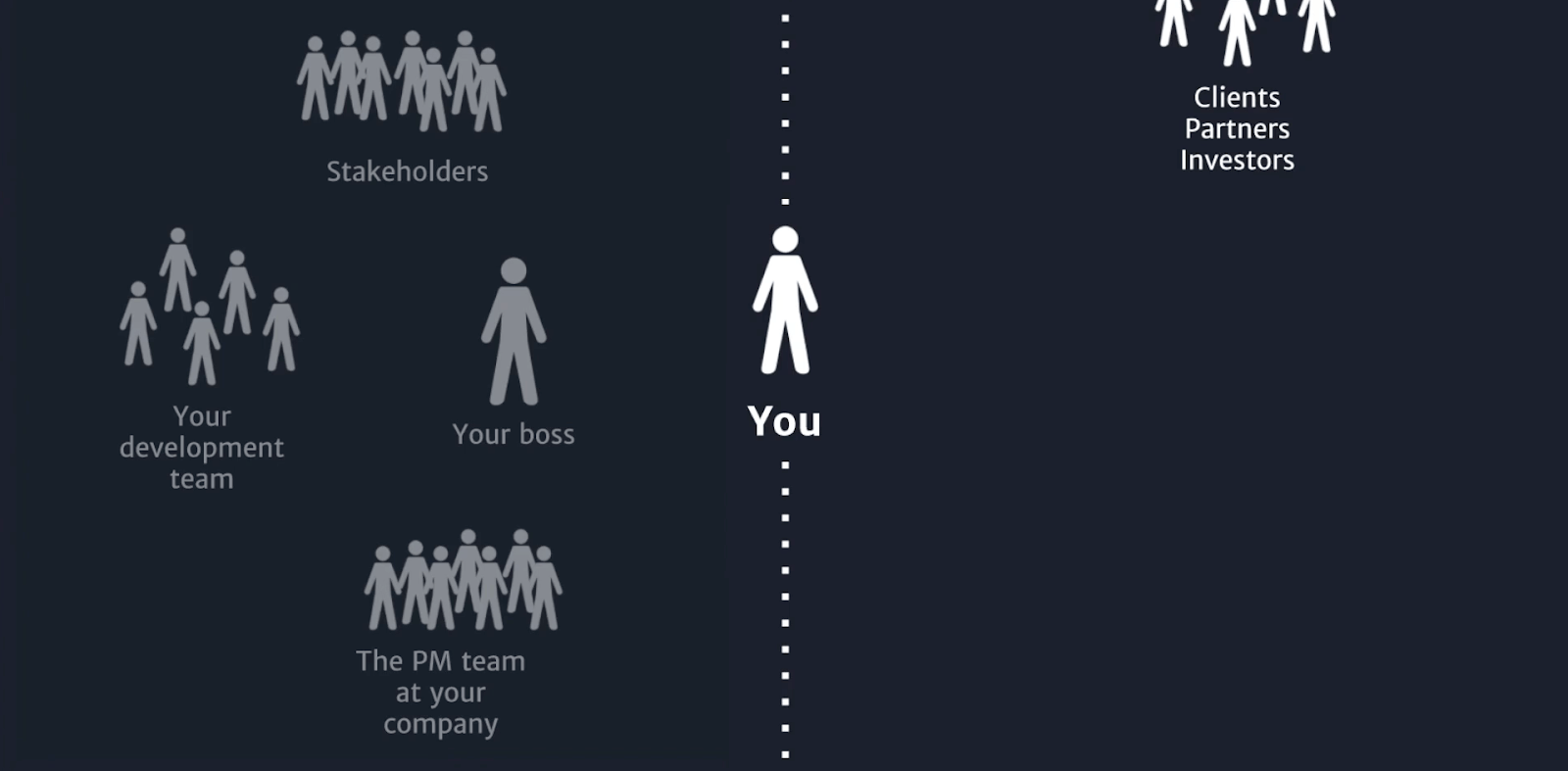
One example from my personal life comes from my previous company, which is called Typeform, a software as a service company. One of the investors created a Slack group for employees of their portfolio companies.
It was amazing because I asked to be on there and suddenly I was interacting with CEOs of other companies and they were asking questions about product management, and I was able to help them out. I even went out for lunch with one of them and that's amazing.
These are the kinds of relationships you have to look for and be proactive about.
The PM community
The same applies to the product management community as a whole.
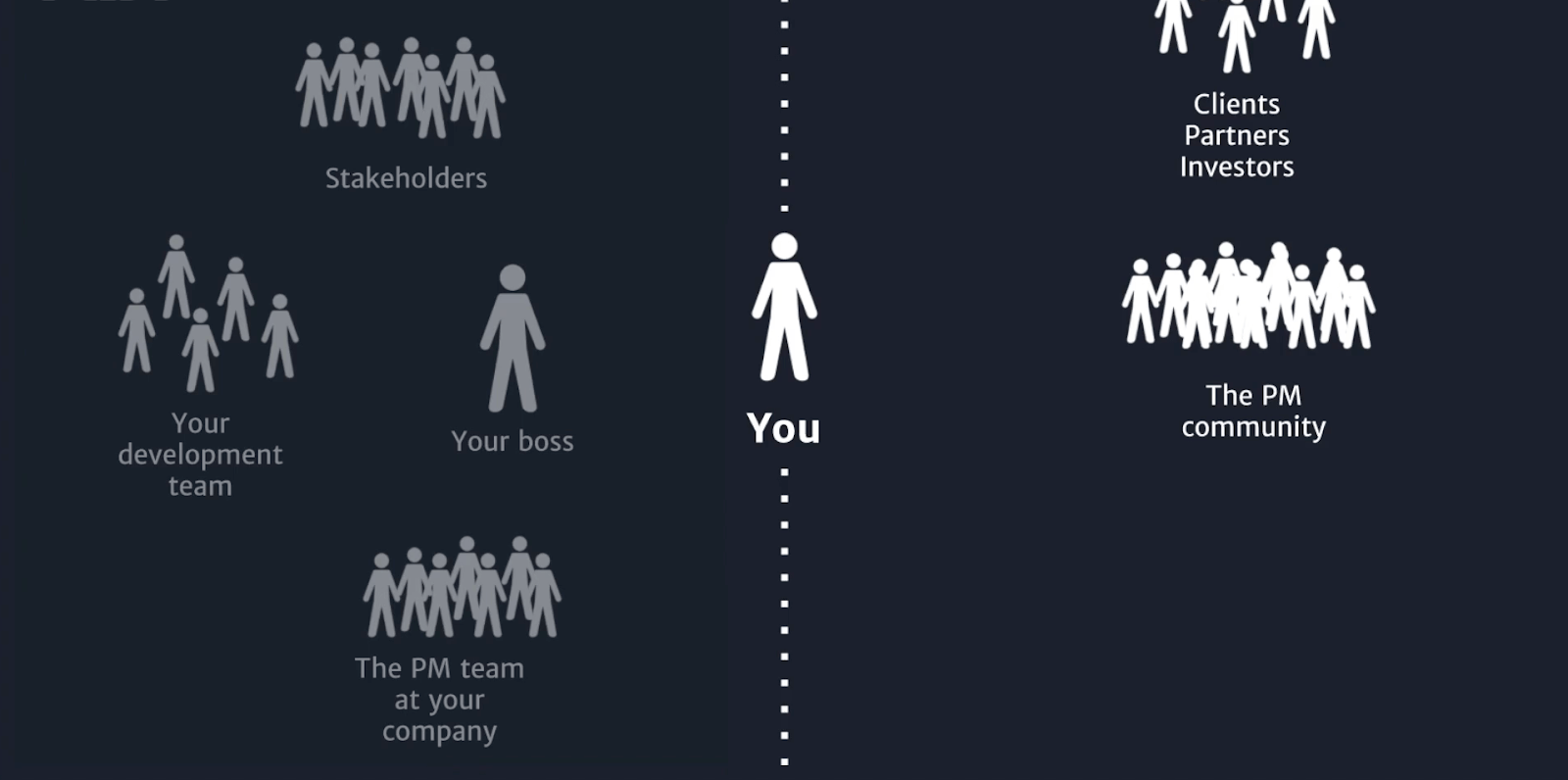
You're taking the first step by engaging in content from PLA but you have to go beyond that. Meet people, ask them deep questions, go beyond the small talk, and really put yourself out there and get to know people.
The rest of the world
Of course, there's the rest of the world, even beyond our little bubbles, so get to know people.
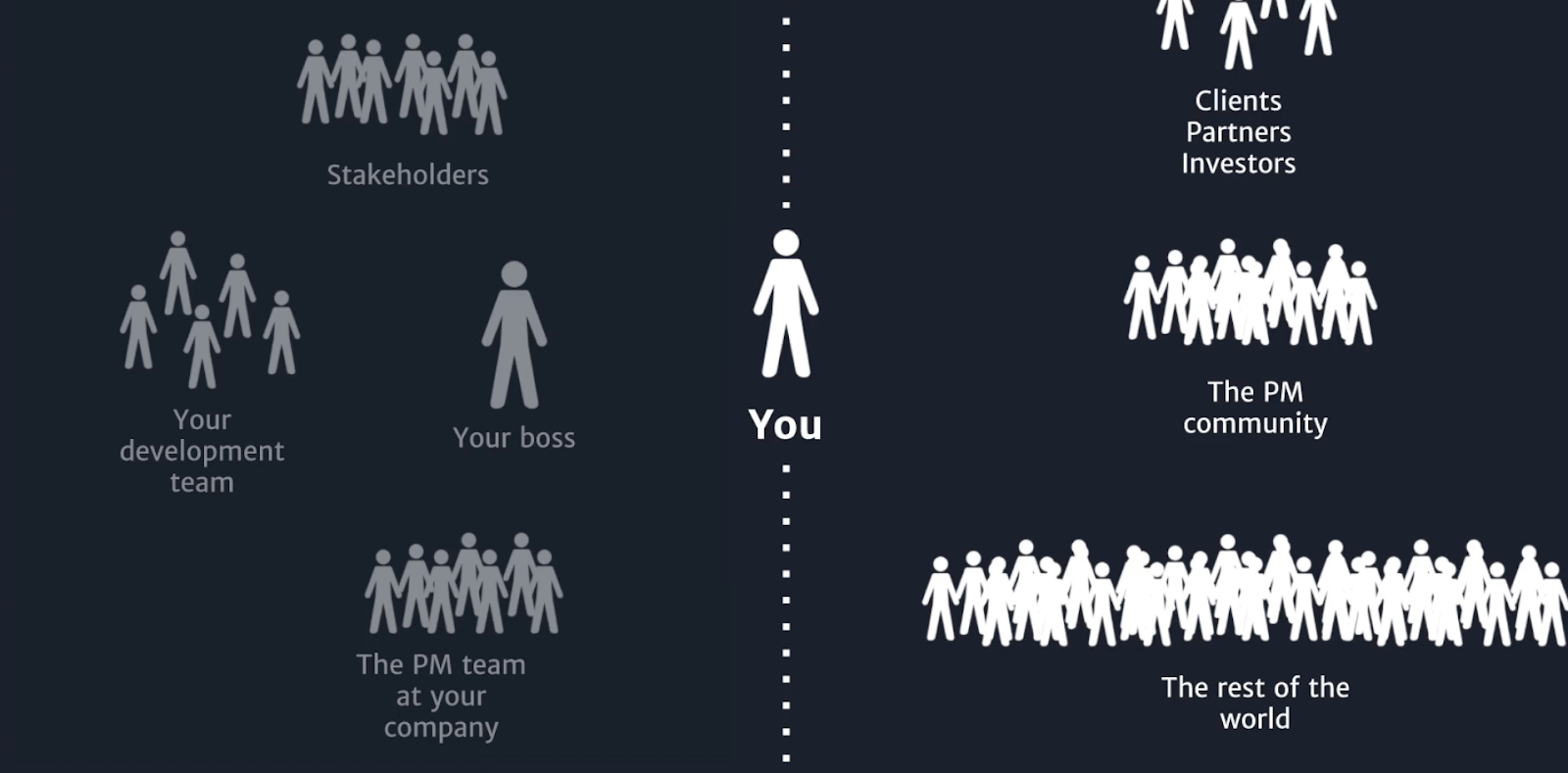
Whatever your goals might be, it's going to be a very different approach you're going to take, so the main point here is really to be strategic and be proactive and be intentional in cultivating real human relationships.
Employer and employer brand
Beyond relationships with people, there's actually a second type that is hugely important for us in business, which is the relationship with your employer and the employer brand.
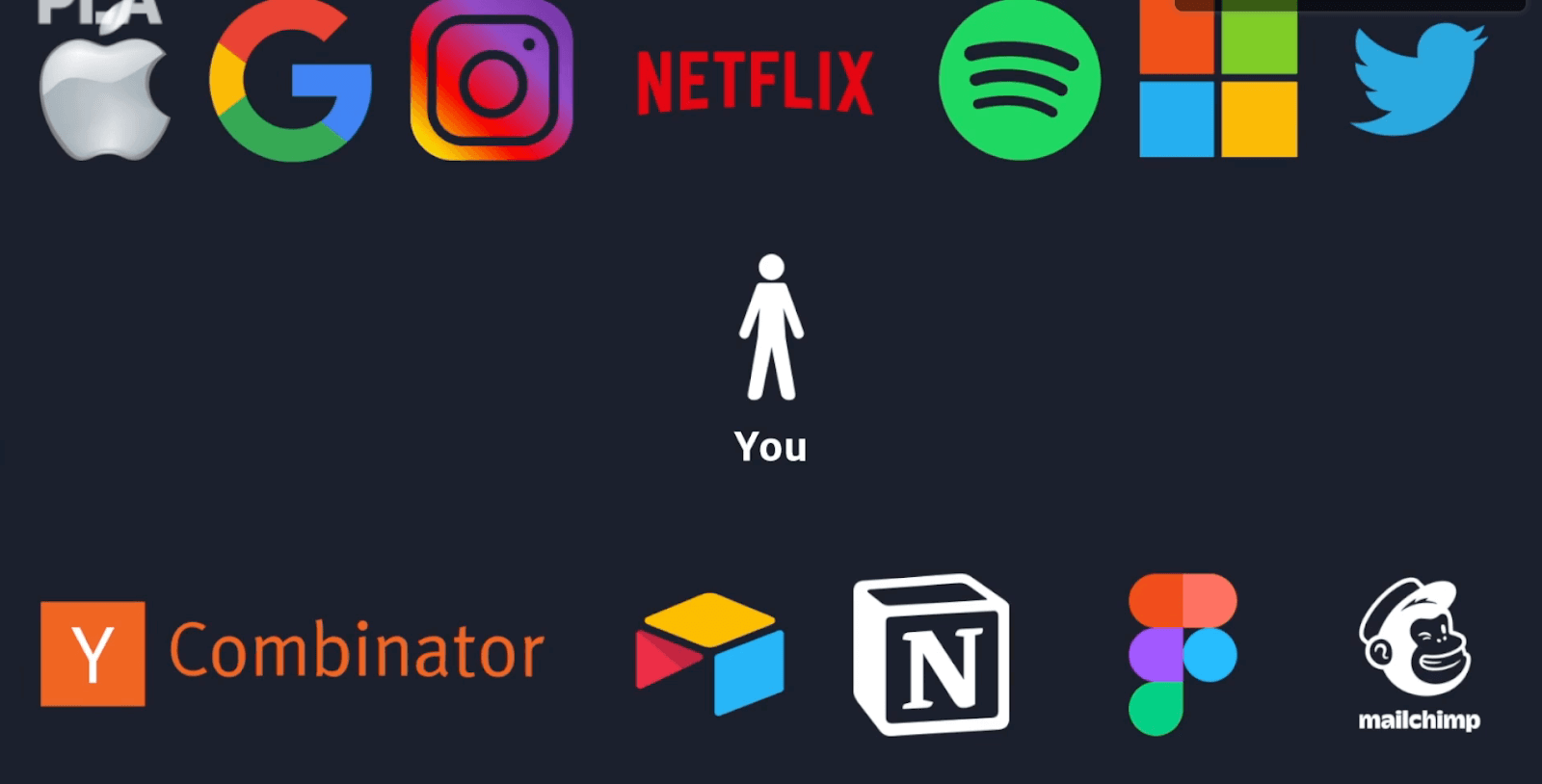
I put a bunch of examples here, but I'm sure you've all seen the consultant coming in who's ex-Google, and the stuff you were proposing where no one was listening, suddenly, they say the same thing but everyone's like, "Oh my God, this is amazing, we're going to try it out".
Why is that? Because they come from a place that's known to be good at product management and so people instinctively associate that person with that brand.
That's what gives them a lot of power in the sense because they have this authority, and that helps people listen to them and helps them get their point across.
Lesson #2: Be intentional with who you associate yourself with
The message I want you to take away from this is you have to be intentional about who you associate yourself with. Think about yourself in a few years, where do you want to be?
- Do you want to be that consultant?
- Do you want to be a startup founder?
- Do you want to be a Chief Product officer?
Depending on your answer and depending on which type of companies you want to work with it's going to be a very different conversation to have when you look for your next job.
- Do you want to associate yourself with a big name in tech like Apple, Google, or Microsoft?
- Or do you want to join at some point, a high-growth startup like AirTable, Notion, Figma, and become part of a success story?
- Or something slightly more established, but still not as mainstream like MailChimp, for example, and learn from people there?
- Or do you even want to have your own business and try to go through something like Y Combinator and get the fancy VC to invest?
The main point is not to do it for that sake but it's to be aware this relationship has a big influence, and use that to your advantage. So be intentional about that as well.
This is really the second type of fuel - enduring relationships with people and with employers and brands.
Fuel #3: Meaningful experiences
The last and third type of fuel is meaningful experiences.
Practice makes perfect
Of course, you can have the best skills in the world, the best network in the world, if you don't apply it and do things, it doesn't matter. Practice makes perfect. That's why gathering meaningful experiences is really super important for your career.
Product manager
Let's start by looking at the basis of everything, which is you are a product manager, so what kind of meaningful experiences can you get there?
A.B.S
Well, the first one is shipping stuff. ABS - always be shipping, that applies to product management hugely, because it's the most important thing.

Shipping real features to customers, seeing how it performs, knowing the impact, and learning from that. It doesn't matter if you're an individual contributor, push your team to develop things and develop things and develop things and ship them.
If you're a Head of Product or a Chief Product Officer, coach your team of product managers into shipping on a regular basis, because that's really the stuff that brings you the experience you need as a product manager at any level.
Example: Typeform
Here's one experience from my own career. When I was at Typeform, we built the first native integration from Typeform where you would send form responses from Typeform directly into MailChimp.
That was amazing because it was the first native integration we built so we had to create the whole user flow. We ran a design sprint, which was a great experience to have.

Then seeing the whole thing evolve over time, where now there's like 20, or 30, or I don't know how many native integrations at Typeform, and it became this whole business area with partnerships and co-marketing and all that stuff.
Seeing that evolve and shipping and also learning from the customer feedback and seeing the choices being made and all of that stuff, that's an incredible learning and that's the kind of experience you need to grow in your career as a product manager.
Be proactive & strategic
Whenever possible, ask for these kinds of opportunities, go after them, and then do it and see things through. That applies to everything you do in your day-to-day, how ever you want to spend your time.
First of all, be proactive, which means don't wait for things to fall into your lap, but ask for them and seek them out. The second one is to be strategic meaning, you can also say no to things. If someone asked you, "Oh, can you help with this?", sometimes you might say "No, because I have more important things that I can focus on".
That's really important, be proactive and strategic.
This was looking at yourself as a product manager, that's the most basic unit. But beyond that, product management is at the core, a leadership job.

Leader
You need to grow your leadership skills, and you need to seek meaningful experiences as a leader.
Put yourself out there
To me, growing as a leader means putting yourself out there. I really mean that in two main ways.
As a person
The first one is to put yourself out there as a person. If there's a tough conversation you've been avoiding at work, go for it and apply radical candor, which by the way, is a book I highly recommend.
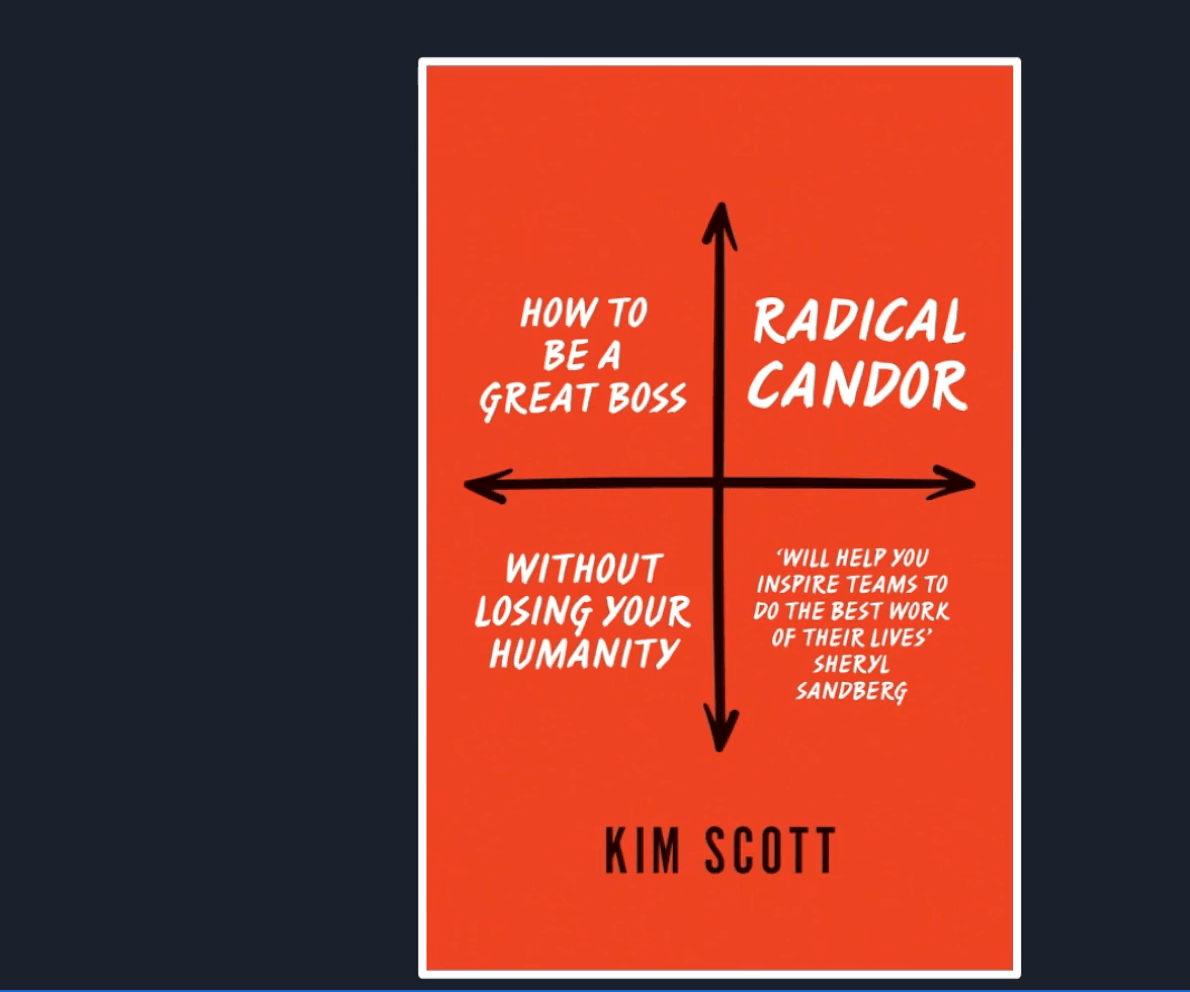
That's the kind of thing you want to do, instead of avoiding conflict, seek it and learn from it, know how to give tough feedback, know how to mentor people, develop people, coach people, manage teams of people.
Seek out those experiences that make you grow as a people leader because that's hugely important and you will need that. That's what product managers are, even if we don't manage our development teams, we need to be a leader for them.
The more you grow your leadership skills and your people skills, the more you're going to grow your career.
Thought leadership
Putting yourself out there in terms of people, but also in terms of thought leadership. In the image, you can see Martin Eriksson, one of the founders of Mind The Product, this amazing series of conferences, meetups, product management training, and all of these things now, but it started really small as a meetup in London, I think.
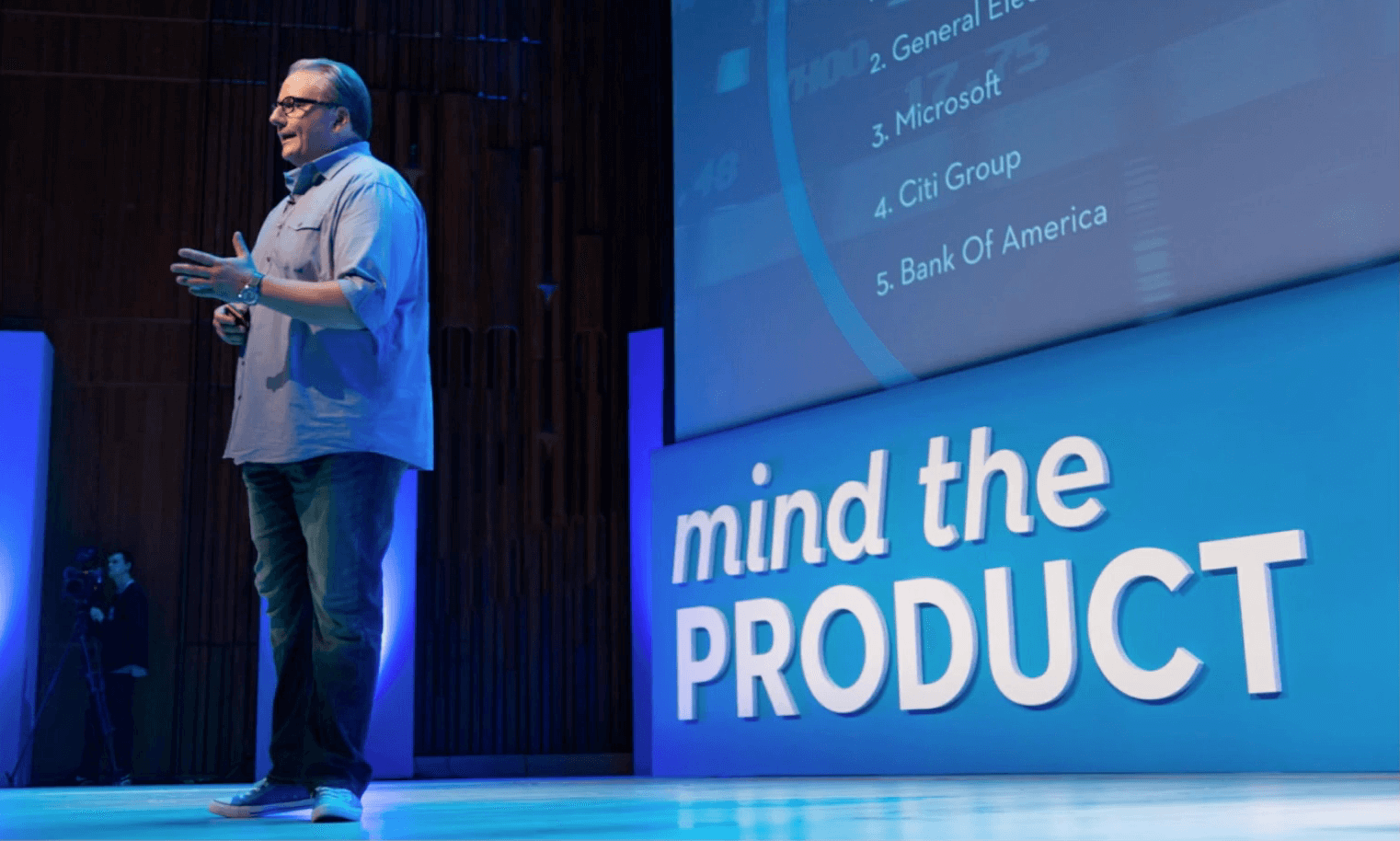
They grew it over time and Martin has done this amazing job of giving talks, being this connector for people, and organizing meetups and conferences. He's put himself at the center of all of that, and become a thought leader for product management.
That's what you can do as well. You don't have to run the world's biggest product conference, of course, you're going to start small. You can start by writing a blog and sharing your thoughts or speaking in podcasts, at conferences, local meetups, or whatever it might be.
What matters is having an opinion, put yourself out there, become a brand, and be perceived as a thought leader and not just a follower. That's really the experience you're going to seek as a leader.
Human being
This is something most people forget, especially in a professional setting, we're not just product managers and leaders we're also fundamentally human beings.
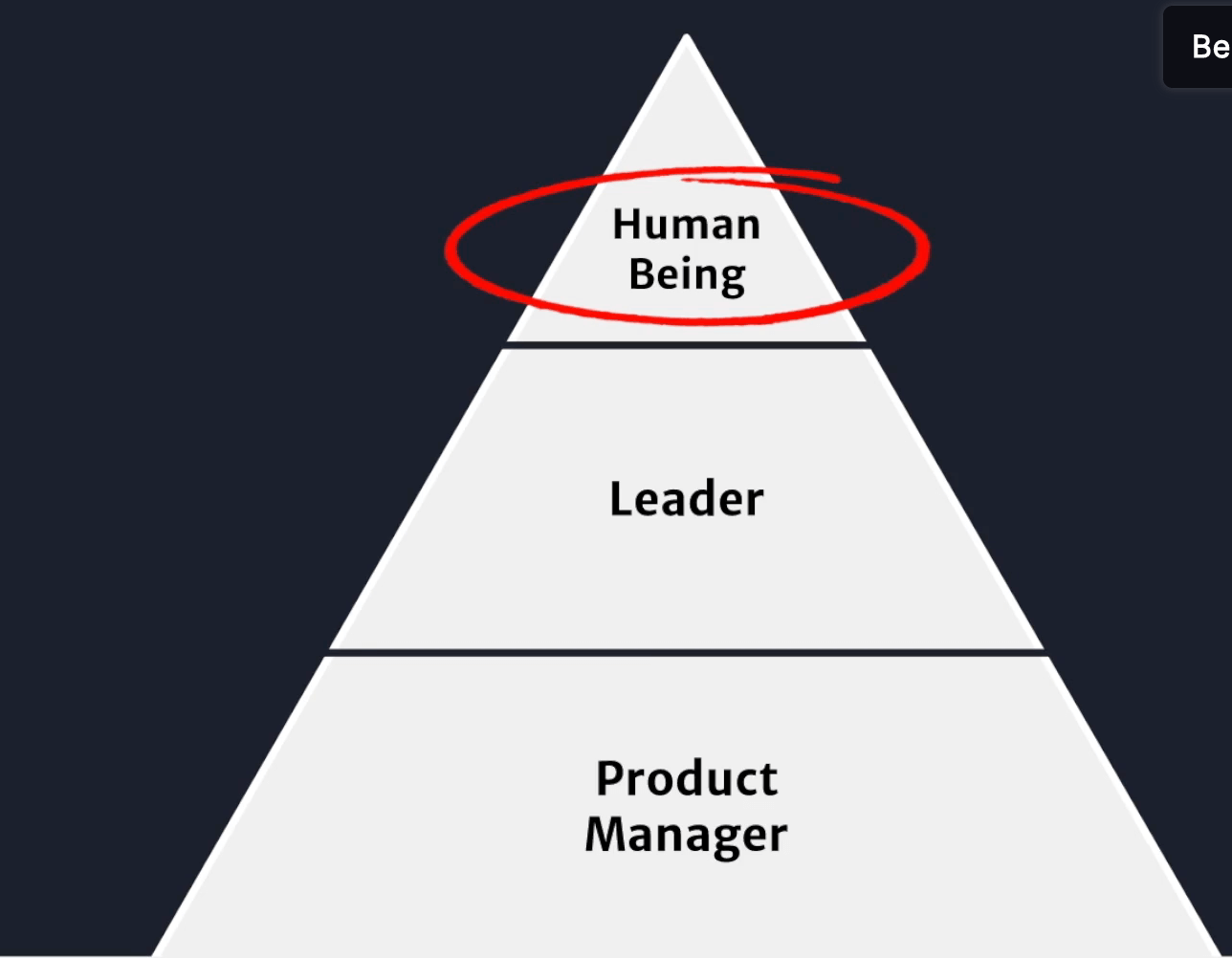
There are a tonne of meaningful experiences you can have as a human being, which have nothing to do with leadership and product management, but will hugely influence your work and yourself as a product manager.
Travel
The most obvious example of this is traveling. You might move abroad for your next job and spend a few years on a whole different continent.
Or if you don't want to do that, or you cannot do that, you can just spend your next vacation in a new place and discover something new because, in the end, it's all about discovering new perspectives and ways of doing things and ways of seeing life.

Example #1: Notion
One example that stuck with me was the example of Notion and the two co-founders there. Let me tell you the story.
They started out in San Francisco, and they had built a first version of the product, which was working kind of well, but then they had to add more stuff. Unfortunately, they had built it in a way that their tech stack didn't allow them to add the features that needed to be built.
At some point, they realized "Holy shit, it needs to be a rebuild". At the same time, they were running out of money so it wasn't the most pleasant situation to be in.
What they decided to do was something quite radical. They literally sublet their apartment in San Francisco to save rent, took a plane, and flew to Kyoto, Japan, because it was cheaper and also because it was different.
They didn't speak in Japanese, and no one there spoke English so actually, they just coded all day.
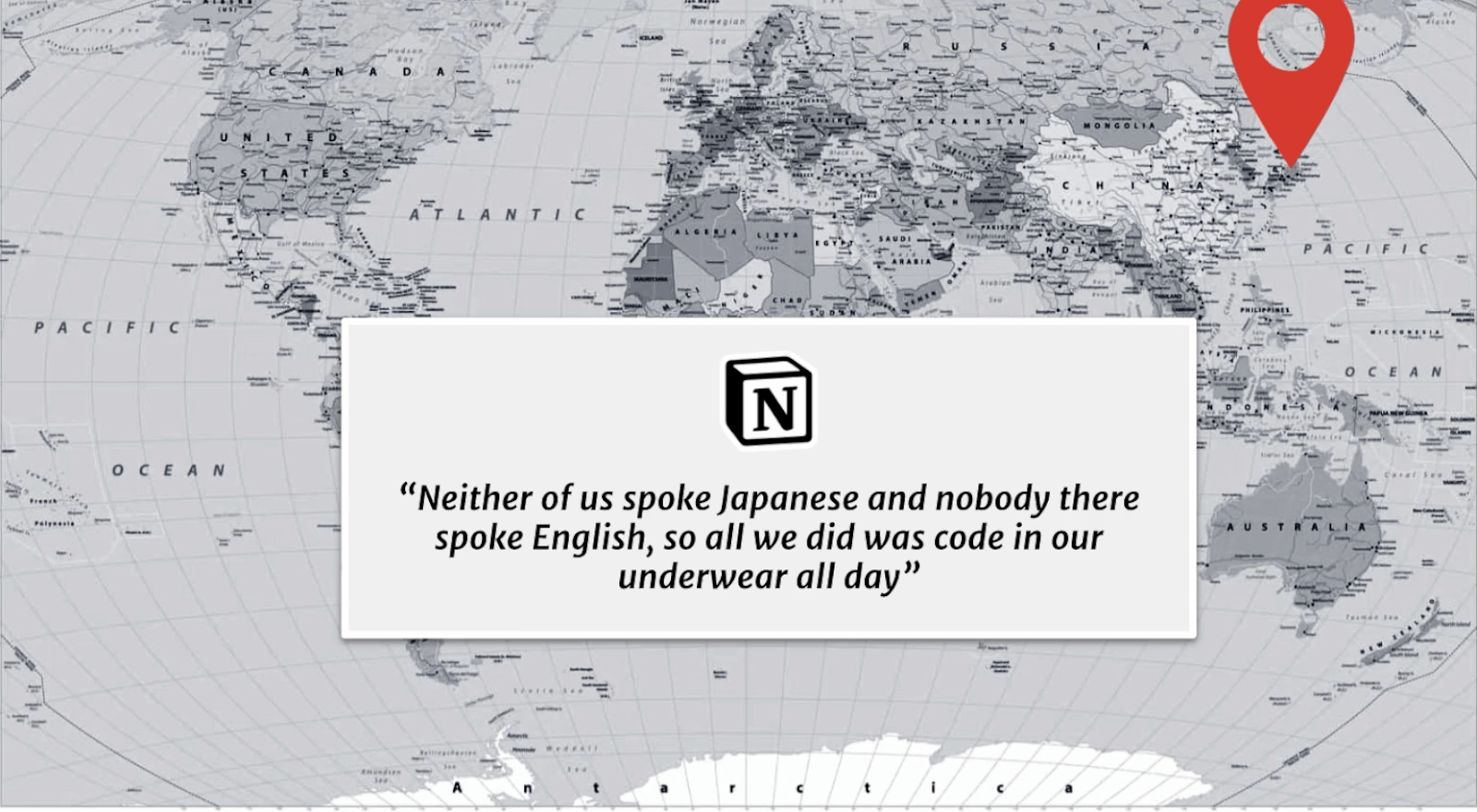
But being away from it all, being in a new place, and being exposed to a new culture with their own food and ways of life and design, aesthetics, all of these things, fundamentally changed how they built Notion.
If you use their product today, you'll see the results of this amazing trip.
That's just one type of meaningful experience that has nothing to do with product management per se but it's just as a human being, a meaningful experience that can help you grow.
Example #2: Steve Jobs
Another famous example of this is Steve Jobs, who in his early days when he was at university would sit in calligraphy lectures, even though it had nothing to do with his major.
He just sat there because he found it intriguing and he followed his passion. What this led to is that it fundamentally shaped his way of looking at aesthetics and design, which later, of course, became Apple, and all these products.
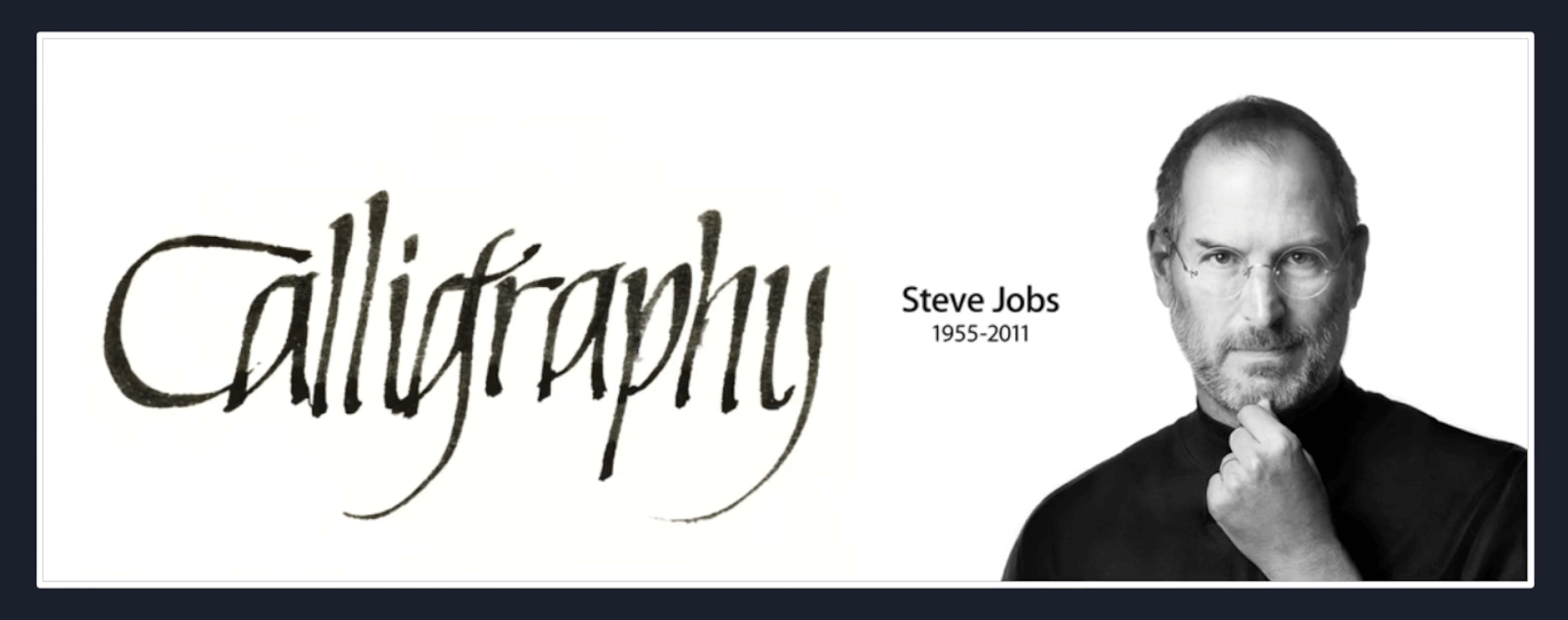
That's why the typography and aesthetics are so amazing because Steve Jobs had developed an eye for these things in his early days with this obscure passion.
What I really encourage you to do is not to hide the human side, which many people often do in a business context, but embrace it.
- What's your unique interest or passion or experience?
- What's your calligraphy?
- Your trip to Japan?
- What could you do in the future?
Embrace those things and learn from them and make them meaningful.
That's really what it's about.
- It's having meaningful experiences as a product manager, mainly shipping stuff, but being intentional about everything you do.
- Putting yourself out there as a leader of people and thought, and
- Seeking new experiences also as a human being to round yourself, which by the way, will also make you a lot happier and more fulfilled.
That was really the third type of fuel - meaningful experiences.
Career fuel: Be strategic and put yourself out there
What these three types of fuel all have in common is they’re about being strategic and putting yourself out there. Don't be afraid, try new things. The main point is you want to accumulate these types of fuel.
In the end, that's what's going to help you move from being reactive and torn in two different places, to being laser-focused with your goals and knowing what you're actually looking for is very specific transportable skills, enduring relationships, and meaningful experiences, which will help you achieve those goals.
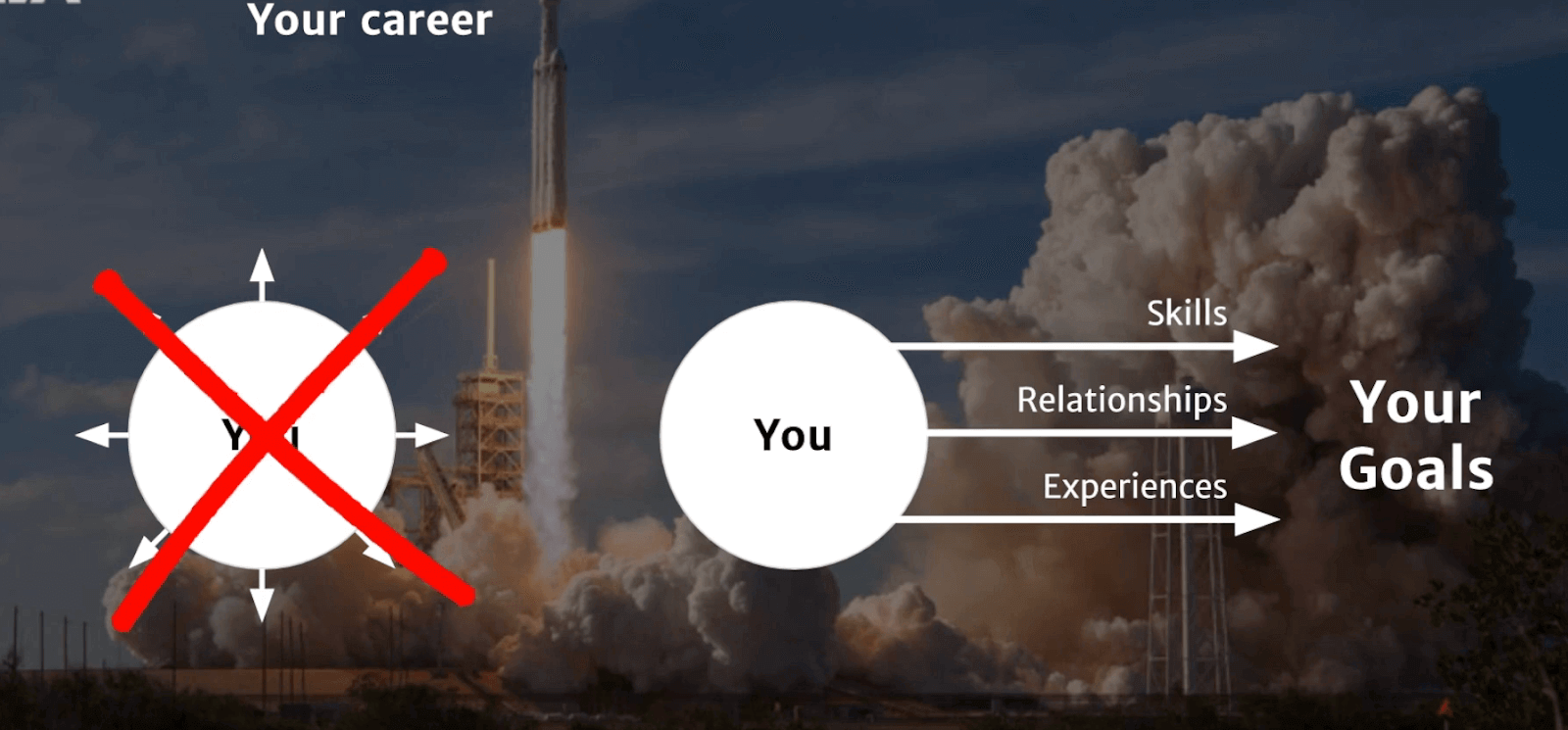
I hope this framework will help you as much as it helped me.
I left this QR code here, that will take you to a link where you can see a long reading list of 300 plus links of articles and books I've found helped me a lot in terms of learning new skills and finding new experiences.
Also the link to Brian Fetherstonhaugh's book I mentioned earlier in the article.

Thank you.



 Follow us on LinkedIn
Follow us on LinkedIn



